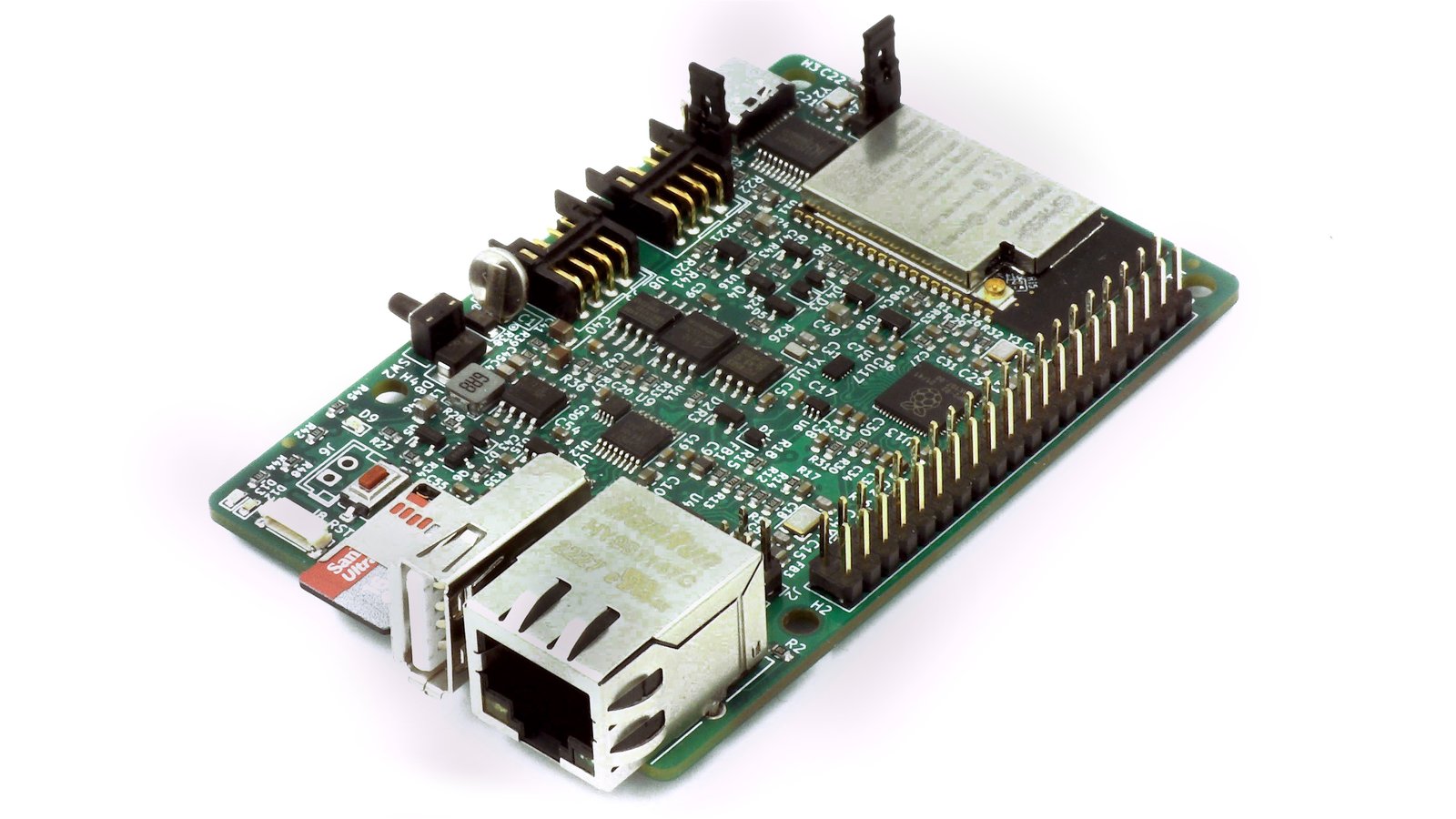MDC
Microcontroller Boards
Wi-Fi
MDC
Microcontroller Boards
Wi-Fi
EsPiFF is a rock-solid Raspberry Pi replacement for applications that do not require the processing power of a Pi or the versatility of Linux but that do require extreme reliability. Pis are great for video, firewall, and NAS applications, but they don’t always provide the level of stability needed for 24/7 applications like home- and industrial-automation deployments. EsPiFF is optimized for uptime, thanks to a supervisor, a super-cap-buffered external real time clock (RTC), an external reset generator, an external watchdog, 8 Mbit of high-end ISSI flash storage, and 2 KB of FRAM for permanent, high-speed, storage for process variables.
And of course, the global chip crisis has made it quite difficult to source Raspberry Pis, so EsPiFF represents a viable alternative for different kinds of projects.
EsPiFF packs an RP2040 on board, which enables the use of existing Pi HATs. The RP2040 state machines allow you to use any protocol via the 40-pin header. 100-MHz signals on your HAT pins? No problem. The RP2040 can handle that. Paired with 16 MB of flash storage, it combines the speed of an FPGA with the simplicity of a SDK-, Arduino-, or Python-programmable MCU.
EsPiFF also fits in third-party Raspberry Pi enclosures, allowing you to choose from a wide array of options, from DIY print-at-home cases to plastic to metal to DIN rail to whatever else the Raspberry Pi community has made available.
EsPiFF is made for communication. It provides wired Ethernet, Wi-Fi, Bluetooth, USB host and device modes, and up to three UART connections. It supports external Wi-Fi antennas, as well, which makes it compatible with all kind of plastic and metal enclosures. We are shipping each EsPiFF unit with an external Wi-Fi antenna.
EsPiFF comes with 16 MB of flash built into the module, and we’ve added 8 Mbit of on-board external flash as well as an (unpopulated) footprint for up to 512 Mbit of additional high-end ISSI flash storage. And of course, you can use the SD card reader to extend this capacity even further. The ESP32’s dual 240-MHz CPUs have access to 8 MB of PSRAM, and EsPiFF is so thermally efficient that you could place it in a water- or air-tight enclosure and it would continue to operate in a way that would be impossible for a Raspberry Pi.
| EsPiFF | Obsidan-ESP32 | Raspberry Pi 4 | |
|---|---|---|---|
| Manufacturer | Team MDC | Singleboardsolutions | Raspberry Pi Foundation |
| MCU | ESP32-WROVER | ESP32-WROVER | BCM2711B0 |
| OS | Bare metal, FreeRTos | Bare metal, FreeRTos | Linux |
| Memory | 8 MB PSRAM | 8 MB PSRAM | 1/2/4/8 GB |
| On-board flash storage | 16 MB | 16 MB | MicroSD only |
| High-speed FRAM | 2 KB | No | No |
| High-speed ISSI flash | 8 Mbit | No | No |
| Additional ISSI flash | Unpopulated footprint for 512 Mbit chip | No | No |
| Micro SD card | Yes | No | Yes |
| External RTC | Yes | No | No |
| Supercap | Yes | No | No |
| Supervisor | Yes | No | No |
| Wired Ethernet | Yes | No | Yes |
| Co-processor | Yes RP2040 | No | No |
| HAT max pin speed | 100 MHz | I²C GPIO (slow) | Module specific |
| PoE HAT possible | Yes | No | Yes |
| Hard real time | Yes (fast) | Yes (slow) | No |
| Heat sink required | No | No | Yes |
| JTAG header | Unpopulated | No | Unpopulated |
| Price | $65 | $35 | $45 |
EsPiFF is fully open source and you can find our design files on GitHub, along with our datasheet. EsPiFF runs Apache NuttX RTOS, or you can program it with Espressif IDF, Arduino, and other ESP32 development tools.
Produced by MDC in Freiberg, Sachsen, Germany.
Sold and shipped by Crowd Supply.

One EsPiFF board, tested and ready to go. Comes with an external antenna and an assortment of cables, including: one serial-display cable with JST female 06SUR connectors on both sides, one serial-display cable with a JST female 06SUR and six female Dupont connectors for Nextion (tm) or similar TFTs, two serial-extension cables with a Hirose female DF11 and eight color-coded Dupont connectors—to bring out up to three UARTs and the SWD debug pins of the RP2040—and a JST female 06SUR-to-grove cable with which to access over 80 I²C grove modules.

Creator of innovative products like electronic payments, laundry tracking, and automation in various fields.